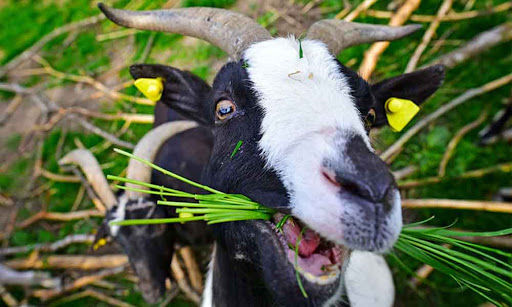Why dirt-eating goats never need to visit the dentist

For goats, a side dish of sand and dust is the normal accompaniment for a hearty meal of grass and plants. But despite their constant chomping, goat teeth never seem to wear down.
To figure out why, researchers fed 28 goats diets with different amounts of grit for 6 months. After 3 months, the team examined the stomach contents of all the goats using computed tomography (CT); 6 months later, they slaughtered the goats and analyzed the contents of their digestive tracts.
The CT scans and dissections revealed that the sand was not equally distributed in the goat guts. Instead, it seemed to collect in goats' lower stomachs. Like cows and other ruminants, goats have a four-compartment stomach: Large pieces of food go into the upper compartment, where they are regurgitated for chewing, and small pieces of food go straight to one of the lower stomachs for digestion.
Because the sand sinks to the lower stomach, it is expelled in the feces and is never brought back up for chewing, researchers report this month in Mammalian Biology. That means the upper stomach helps "wash" grasses and plants free of grit, just like we wash our greens, saving ruminant teeth from wear. And even though this experiment was done in goats, the scientists say it could explain why the teeth of cud-chewing cows, deer, and giraffes are similarly protected.
Source: sciencemag










